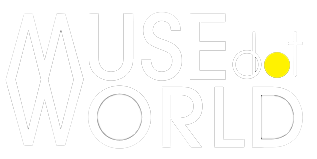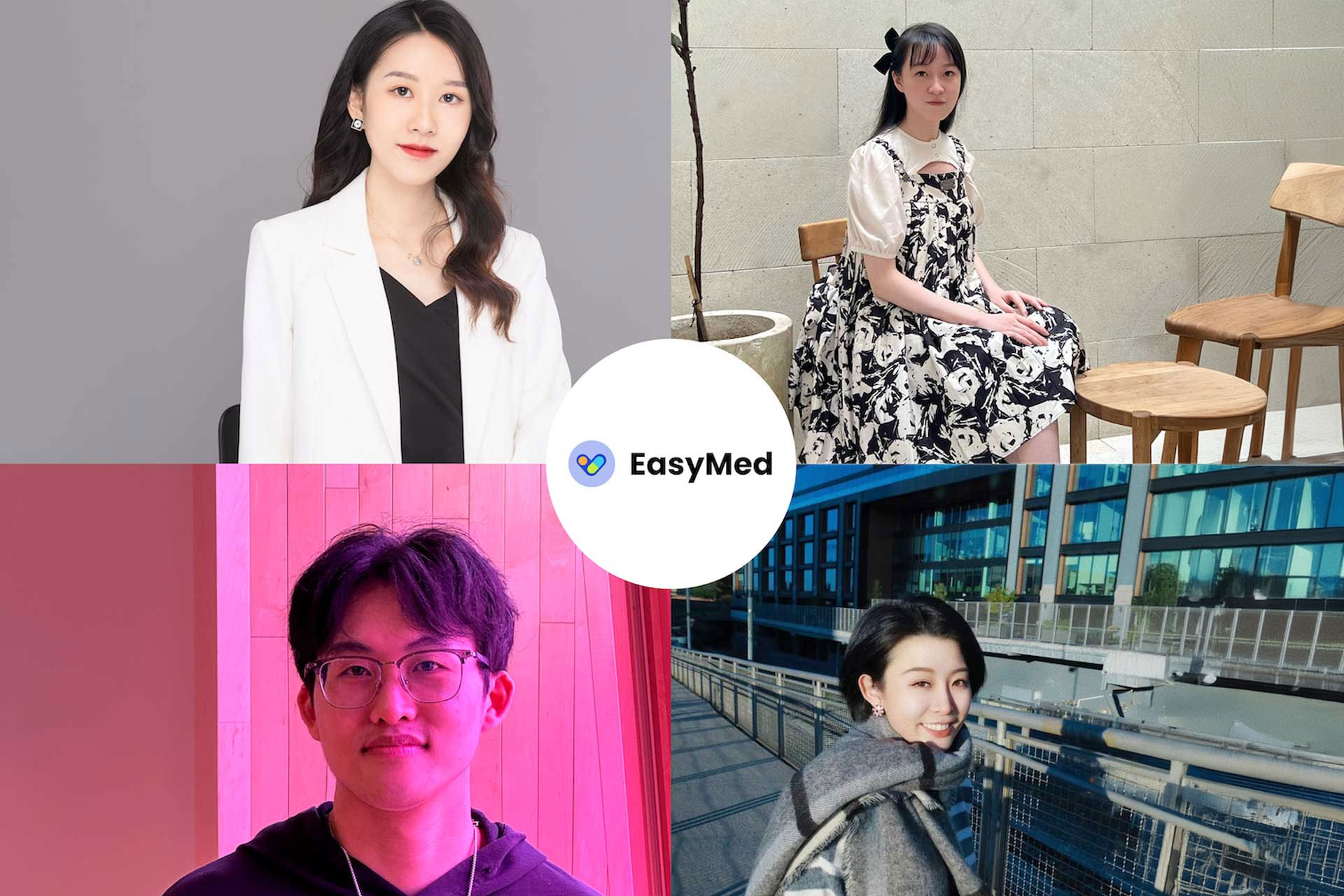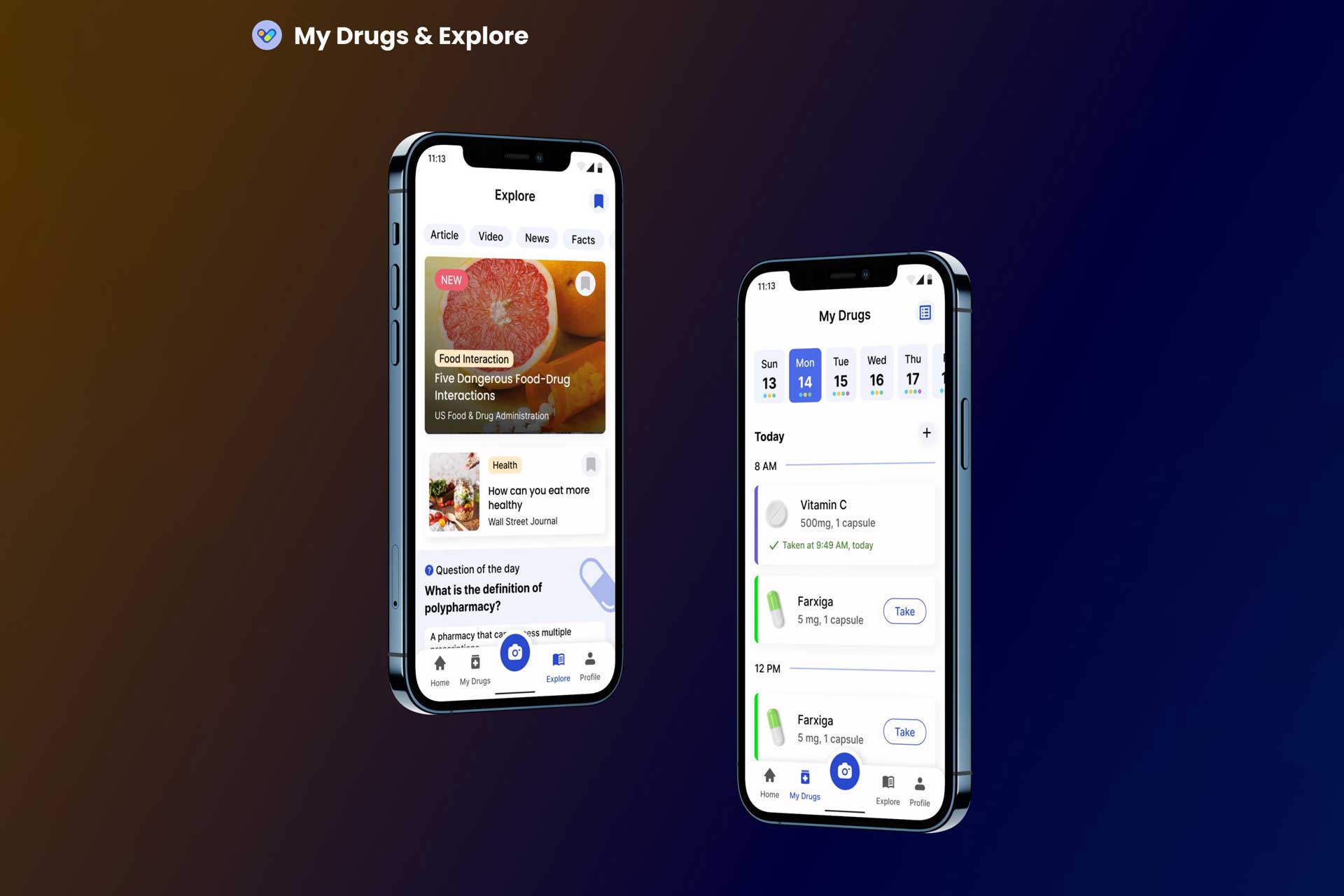Interview with the EasyMed Team

Interview with Courtney Kehl from United States
June 10, 2024
Hunters M40: Redefining Luxury and Innovation in Yacht Design
June 10, 2024EasyMed Team
EasyMed is a design studio comprising four talented designers. Lingshuang Kong and Yumei Feng are the founding designers, who established the studio with a vision for innovative design. Shichao Wang and Lin Li are key members of the team, each bringing unique skills and perspectives to the studio's creative projects.
Currently, our design studio has a total of four designers, with Lingshuang Kong and Yumei Feng being the founding designers of the studio. Shichao Wang and Lin Li are the important members of the studio. Next, they will introduce themselves.
Lingshuang Kong: Hello, I'm Lingshuang, currently residing in San Jose. I'm a designer and developer with a background in both design and programming. I thrive on employing human-centered thinking, rational design, and cutting-edge technology to craft digital products that enhance people's lives.
Yumei Feng: I am Yumei, currently a product designer at Deloitte Consulting with a passion for emotional and empathy driven design. I enjoy connecting with people to learn about their perspective and advocating people to adopt design thinking in their daily lives.
Shichao Wang: Hi, I’m Shichao, who brings over 5 years of product design experience, working with both unicorn startups and NGOs. I excel in simplifying complex problems, pioneering initial product development, and transforming business concepts into innovative designs.
Lin Li: Hi there! I’m deeply involved in graphic and visual design with a solid grasp on marketing. My career is all about tackling user challenges and crafting designs that boost engagement and drive results.
Lingshuang Kong: After completing my undergraduate studies, I joined Tencent as a full-time software engineer. Working closely with user experience designers, I developed digital applications for 800 million users. However, during my tenure, I gradually discovered the allure of creativity and design—creatively identifying and solving real-world problems through design thinking. Fueled by this passion, I transitioned into a role as a product designer and UX engineer.
Yumei Feng: Growing up, I explored creative paths like fashion, visual arts, and film, but none fully aligned with my creative instincts and rational thinking. Then, I found UX Design—a perfect blend of creativity and logic. I fell in love with its innovative thinking and endless possibilities. As I delved deeper, I discovered my passion for crafting impactful, customer-facing experiences. This journey shaped me as a designer, and I'm excited to continue creating meaningful experiences.
Shichao Wang: I studied architecture in college and found that the creative possibilities in the digital realm were more aligned with my interests than traditional architecture.
Lin Li: I got into digital design because I love blending creativity with technology. It’s thrilling to use digital tools to bring artistic visions to life and improve how people interact with the digital world.
Lingshuang Kong: Our design studio is called EasyMed, co-founded by myself and Yumei Feng. Our primary focus lies in the design and development of the EasyMed product. As co-founders of the studio, Yumei and I jointly oversee the product's design and development. Shichao and Lin are designers in our studio, and they are currently responsible for exploring and designing new features for EasyMed.
Within the studio, I hold the role of Product Designer and UX Engineer. My responsibilities encompass leading the product planning, design process, and development procedures.
Lingshuang Kong: My favorite kind of digital design is innovative and disruptive. I am drawn to designs that challenge the status quo and push the boundaries of what is possible. Additionally, I value designs that truly address real-world user problems. It's gratifying to see how digital solutions can positively impact people's lives by providing practical solutions to their everyday challenges.
Lastly, I appreciate digital designs that prioritize user experience, ensuring seamless interactions and intuitive interfaces. By focusing on these three aspects, digital designs can not only be visually appealing but also functionally effective and user-centric.
Yumei Feng:In my view, effective design should seamlessly merge functionality with aesthetics, while maintaining a keen focus on human-centered principles. It should be innovative, pushing boundaries and challenging norms, yet remain thoughtful and considerate of its users.
Above all, a good design must strike a balance between fulfilling user needs and achieving business objectives, creating a harmonious synergy that drives both user satisfaction and business success.
Shichao Wang: My design style is strategic and user-focused, emphasizing clarity and functionality. I use rapid prototyping to visualize ideas and refine them based on user feedback. This process ensures that designs are not only visually appealing but also enhance user interaction and meet business objectives efficiently.
Yumei Feng: In my design practice, I adopt the Double Diamond approach as a foundational framework but uniquely tailor it with my insights and adaptability for each project. This typically starts with a deep dive into understanding the context and the problem at hand, forming hypotheses and then substantiating these with rigorous research. Rapid prototyping is a significant part of my process, enabling me to bring concepts to life and assess their efficacy. These prototypes are then refined through continuous iterations based on further validations, ensuring the final design solution is both refined and effective.
One unique aspect of my process is the emphasis I place on a profound understanding of the problem to ensure I propose the most appropriate solutions. I favor qualitative research methods as they allow for a direct connection with users, providing rich insights that quantitative data sometimes miss. I firmly believe in the power of iteration and the value of involving users in the design process as co-creators.
This collaborative approach not only enhances the solution but also gives me an opportunity to see the long-term impact of the products I deliver. I am committed to continually refining and improving upon them, ensuring they remain relevant and effective in meeting user needs.
Lin Li: Inspiration comes from everywhere for me—nature, architecture, international cultures. I also love connecting with online design communities and experimenting with the latest tech.
Lin Li: The rise of AI and machine learning in design really excites me. These technologies are transforming the way we create and interact with digital content, allowing for more personalized and dynamic experiences.
Lingshuang Kong: Receiving the Vega Digital Award is truly an honor and holds profound significance for me as a product designer and UX engineer. It acknowledges the dedication I've poured into the realms of design and creativity, validating the impact of my past efforts.
To stand out among such a wealth of exceptional works and to witness recognition from industry experts and seasoned designers is incredibly inspiring. I believe that winning the Vega Digital Awards will fuel my ongoing commitment to product design and creative design, driving me to create more valuable solutions that solve daily real-world pain points.
Yumei Feng: Yumei Feng: We developed EasyMed, an innovative solution designed to address the critical issue of multi-drug and drug to food interactions. EasyMed is a user-friendly drug-to-drug and drug-to-food interaction checker, explicitly tailored to alleviate the concerns seniors often have regarding the simultaneous use of multiple medications. Our primary goal with EasyMed is to empower not only seniors but the general public as well, by providing a reliable tool for identifying potential multidrug interactions. Through this, we aim to educate users about their medications, assisting them in mitigating any potential adverse effects.
The inception of EasyMed was inspired by a visit to the UCSD Senior Medicine Center. We observed a significant gap - seniors expressed deep concerns about their complex medication regimens, while doctors, constrained by time and resources, struggled to address these worries in detail. Recognizing this need, we assembled a dedicated team to develop a solution, which culminated in EasyMed.
EasyMed not only allows seniors to check for possible drug interactions independently but also provides them with access to comprehensive educational resources and drug management. We believe our product will significantly impact the lives of many by addressing the urgent needs of our aging population. Through EasyMed, individuals can now have peace of mind regarding their medication use, promoting a safer and healthier lifestyle.
Lingshuang Kong: Our project encountered several significant challenges. Firstly, while existing ML models provided a foundation, as a designer, I faced the task of optimizing their efficiency and refining output for user comprehension. Adapting complex algorithms into user-friendly formats presented its own set of hurdles, particularly considering our target audience of older adults.
Understanding the unique needs of older users was paramount. Through interviews, we discovered that heavy text and medical jargon posed barriers to comprehension. To address this, we integrated Azure's text-to-speech service and a medical dictionary API into our application, facilitating ease of use for older adults.
Furthermore, ensuring accessibility was crucial. We meticulously designed the interface with legible text and font sizes tailored for elderly users, and incorporated color schemes friendly to those with visual impairments. Overcoming these challenges was essential to delivering a user-friendly and inclusive AI product.
Lingshuang Kong: Winning the Vega Digital Awards serves as a powerful catalyst for my professional growth. It inspires me to embrace new challenges, explore diverse design possibilities, and continuously push the boundaries of my capabilities. Moreover, it reinforces my commitment to making a significant impact on the world through design.
As a product designer and UX engineer, my core ambition is to leverage technology to enhance people's lives and contribute to a more enjoyable world for all. This recognition encourages me to remain steadfast in this pursuit, driving me to strive for excellence and innovation in my practice. Ultimately, winning this award motivates me to amplify my influence and effect positive change on a broader scale.
Shichao Wang: Innovation, flexibility and impact.
Lin Li: In my view, My home country, China, lends a unique flavor to the digital industry based on its rich cultural diversity, fostering a dynamic atmosphere for innovation. On the other hand, the United States, where I work now, boasts a robust tech infrastructure, providing a solid foundation for groundbreaking advancements.
Lin Li: Looking ahead, I see digital design becoming even more intertwined with AI, virtual reality, and augmented reality, making digital experiences more immersive and fundamentally altering our interaction with digital content.
Yumei Feng: Here are three pieces of advice I would have for any student or individual thinking of partaking in the Vega Digital Awards:
Identify and Challenge the Status Quo: Stay observant to the happenings and social phenomena around you. Look for systemic flaws or overlooked communities and think about how you can improve their situations. The society we live in, with all its intricacies, offers a wealth of inspiration and a myriad of problems awaiting innovative solutions.
Push the Boundaries: Once you've identified a pertinent problem, push beyond the immediately obvious solutions. Aim to create something truly transformative, something that pushes the envelope and brings about meaningful change.
Engage with Your Audience: As you develop your solution, engage with the people who will be using it. Understand their needs, their pain points, and incorporate their feedback into your design process. This will ensure that your solution is grounded in real-world needs and experiences.
Iterate and Improve: Remember, in the creative industry, there's rarely a definitive end point. Once you've proposed an initial solution, continue to test, refine and improve it. The process of creation is a cycle of continuous learning and improvement.
Shichao Wang: Inspiration websites such as medium.com, awwwards.com and designspells.com.
Shichao Wang: Today, I explored a newly constructed building on campus and was disappointed by its design.
Yumei Feng: I find inspiration from a diverse array of sources, ranging from industry luminaries to everyday individuals like friends, family, and peers. I firmly believe that each person is unique and offers valuable traits to learn from and admire.
One individual who has been a constant source of inspiration and motivation for me is Lingshuang Kong, a fellow founding designer at EasyMed. In addition to his role as a key team member, Lingshuang and I collaborate closely on generating ideas, with him also spearheading much of the front-end development. His journey from software engineer to designer reflects his unwavering determination and genuine passion for human-centered design.
What truly sets Lingshuang apart and from myself is his resilience and adaptability. Despite facing challenges and setbacks, he remains steadfast and maintains a positive outlook. I'm particularly inspired by his willingness to embrace new challenges and continuously expand his skill set. Our close relationship allows me to draw from his positive energy and unwavering passion for design, serving as a constant source of inspiration in my own creative journey.
Shichao Wang: Continuously exploring new ideas, observing the world, and questioning the status quo have been essential in staying relevant and innovative in my field. As for words of wisdom: embrace curiosity and never stop seeking knowledge. It's the relentless pursuit of understanding and improvement that leads to meaningful achievements and personal growth.
Winning Entry
EasyMed | 2024
(read more at Vega Digital Awards)
EasyMed Team
EasyMed is a design studio comprising four talented designers. Lingshuang Kong and Yumei Feng are the founding designers, who established the studio with a vision for innovative design. Shichao Wang and Lin Li are key members of the team, each bringing unique skills and perspectives to the studio's creative projects.
The 2024 Vega Digital Awards has released its official list of victorious winners in its first season!


